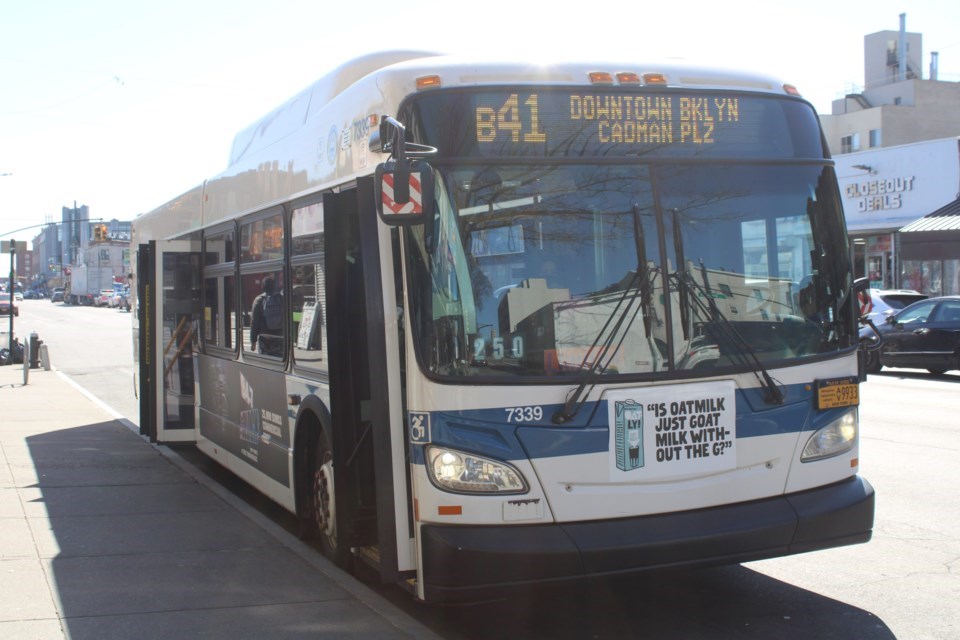Slow and unreliable bus service along Flatbush Avenue is affecting commuters’ jobs, finances and well-being, according to a new survey by Riders Alliance and the Pratt Center for Community Development.
The survey of more than 1,800 bus riders found that 91% have been negatively impacted by delays, with two-thirds enduring long waits in extreme weather, according to a press release.
Half of respondents said they’ve had to pay for taxis or car services when buses didn’t arrive on time, and one in three reported being reprimanded, fired or losing pay due to lateness caused by poor service.
"It’s clear that bad bus service is hurting Brooklynites’ income, job and business development opportunities," said Jolyse Race, senior organizer at Riders Alliance. “Flatbush Avenue riders deserve respect from City Hall.”
The buses along the avenue that cuts through major swaths of Brooklyn are a lifeline for many working-class residents, the survey found. About 59% of riders are Black, 72% are women and 74% have annual household incomes below $80,000.
The report also highlighted the economic consequences of unreliable service: 85% of respondents said they would shop or dine on Flatbush Avenue more often if buses were more reliable.
Alison Harewood, a caregiver at a Brooklyn hospital, said delays on the B41 bus have made her late to work, impacting her ability to care for patients.
“Patients are counting on me to be at the bedside and be on time, but I often take the B41 bus to get to the hospital which runs slow and seems to be getting slower," Harewood said. "Healthcare workers need reliable bus service so we can be on time for our patients and continue providing quality care to our seniors, the sick and the most vulnerable in our borough."
Sylvia Morse, senior program manager for research and policy at the Pratt Center, said the findings underscore the importance of improving transit access.
“Our research shows that local residents depend on Flatbush Avenue buses to get to work and school, to medical appointments, and to shop at businesses in neighborhoods all along the bus route, but face slow, unreliable service and its financial and health impacts," said Morse. "We hope that this analysis of bus riders’ experiences will inform city plans for Flatbush Avenue.”
The survey results come as advocates push for long-awaited bus lane improvements on Flatbush Avenue. City transportation officials are expected to announce a project timeline early next year.




